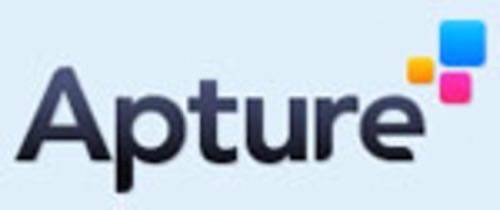I first saw a startup called Apture demonstrated in an off-the-record session at O’Reilly’s by-invite-only FOO Camp several years ago. The room was packed and I had to stand on my toes outside the doorway to see Apture’s Tristan Harris navigate around the Internet on a projected screen. He was highlighting words with his cursor and making related articles, photos, Wikipedia pages and YouTube videos pop off the surface of the page in a handsome little box with rounded corners. Everyone in the room made ooh and aah noises when they saw it. Wherever you saw a word – you could learn a whole lot more about it with a little swipe of your mouse.

What will the Internet look like in 5 or 10 years? Will it still be a series of linked pages that users browse through, one at a time? Google may be betting that it will be something very different, if the company’s latest acquisition is any indication. Apture, the service you can see in action if you highlight any word on this ReadWriteWeb, has been acquired by Google, the two companies announced this morning. An addition to offering media-rich contextual search pop-ups on the pages of publishers who have installed the service, Apture also offers a browser plug-in that adds the same functionality to any page on the web. Much of that same functionality will be baked into Google’s browser Chrome very soon.
Apture Highlights Extension Welcome Video from Apture Inc on Vimeo.
I love Apture very much – I want Apture for my iPad, I want it for my phone, I want it to shoot out the end of my finger when I see words printed offline. Unfortunately, the Apture app is going to be shut down by Google in 45 days.
The very good news? The same type of functionality is going to be baked into Google Chrome in the near future. Look out, other browsers, Chrome and its users are about to get a whole lot smarter.
Google emphasized that the literal product itself is not going to be placed directly into Chrome, but said that Apture was being shut down so the team could focus on building “more things like it” as a part of Chrome.
Apture says its scripts get served up on 1 billion pages every month right now. “I’m going to miss it [the product] myself, too Marshall,” CEO Harris consoled me today, “but hopefully this kind of thing will be showing up all over the place.”
The Next Layer of Search
Will people use functionality like this as part of their browser? Will people think to “highlight to Google?” When I first wrote about Apture’s browser plug-in, I said it was like Augmented Reality for the Web. But I wondered if people would use it regularly. “If I told you the world was your oyster, that layers of multimedia explanation and context lay behind every word on the web and are now accessible with a simple flick of the wrist – could you develop a new habit of lifting the covers to look at it?”
Other companies that track copy-and-paste activity say that highlighting things on a page so they can be shared by email is still far, far more common than clicking buttons to links via Twitter or Facebook. I imagine that once those copy-and-pasters learn they can highlight to Google, it could really change the search experience.
Harris:
“I can’t comment too much about Google’s future plans but what I’m excited about is: in 10 years are we still going to be browsing the web we do today? Is search still going to be 10 blue links? Are we going to still click on links to visit another page? I think those things are going to change and Apture represents just one part of those changes. Infinite background information and videos can compliment your understanding of anything you’re looking at.
“When you think about Google’s mission of making the world’s information organized and accessible, you can’t think about that without thinking about the browser. Google.com is v 1.0 of that, and Chrome’s performance and speed has done amazingly well, but the browser is still a flat web browser. I think what you’re going to see is more moving beyond the traditional metaphors of a traditional web browser. What’s beyond everything we’ve seen with a browser so far? I hope it’s beyond the single page and browsing metaphor that started in 1995. I think we’ll see a lot more from the browser itself.”
Apture now changes from an option add-on to, in spirit at least if the same software itself does not literally live on, a new way to Google for things. Not on Google.com, not in the search bar, not by voice, not by mobile – but directly from the fabric of the web. That’s a big responsibility for a little four year-old company that raised just over $4 million in venture capital.
A Win for Human Intelligence
It’s also a hopeful turn of events for those who read with curiosity. I love finding peoples’ names online, highlighting them and having their Twitter handles appear. I love highlighting the names of companies and instantly watching product demos in an inline YouTube player. The service’s Wikipedia integration means you can read words on the web not just with your own understanding, but with the world’s largest, most refined, collective encyclopedia always at your fingertips.
When I asked about integration of this kind of functionality into the developer-facing parts of Chrome, Harris said he thought that was a good idea but couldn’t comment.
“When you have native access to search in a browser,” he said, “I’m really excited to think about other things Google that could do to enhance other kinds of products.”
I am too.
















